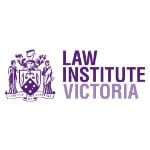In some instances, the Court can make an order for a party to do or stop doing something that may cause damage to another party. This is called an injunction. Below we outline the procedures involved in such a Court action.
- Your Case
It’s imperative to know what your objective is before filing an injunction. Are you trying to prevent a party from doing something or order them to perform a specific action? Specific instructions about your matter will be required before we can give any preliminary advice about the merits of potentially issuing any Court proceedings, including an injunction.
In the case of an injunction, urgent action is usually required. This is because the timing of an injunction is usually very important. In very urgent cases, an injunction can be obtained within a matter of hours without notice to the other party, but these types of injunctions only last for a few days so that the other party can be served with documents and come back to Court to put forward any opposition. Most applications for injunctions are made within 3 to 10 days of receiving instructions after papers have been served on the other parties.
- Remedies
Assuming there are merits to your case and legal action is warranted in the form of issuing Court proceedings, in any such proposed Court action, the following remedies are usually available to you:
- an injunction. In urgent cases, an injunction may be sought on an interim (interlocutory) basis pending trial. The purpose of the injunction on an interlocutory basis is to maintain the status quo until the matters in dispute can be finally determined at trial;
- damages or, at your option, an accounting of profits; and
- orders for the making of enquiries and taking of accounts – in order to assist in the assessment of damages or accounting of profits.
- Procedures Involved in the Court Action
In considering an action for urgent injunctive relief, it is helpful to regard the Court action as a two-staged process, namely:
- the preliminary stage; and
- the trial stage.
It should also be borne in mind that a settlement of the case might be able to be negotiated at any time throughout the course of the proceedings. There will be key times of psychological significance throughout the course of the matter which are conducive to settlement negotiations. These are just prior to the preliminary hearing of any application for an immediate injunction, during a formal mediation to be convened at a later date or just prior to the final trial of the case.
Whether settlement discussions take place at those key times or at any other time throughout the course of the matter will depend a great deal upon the other party’s attitude to your claim and their willingness to enter into negotiations.
Usually an application for injunctive relief brings the dispute to a head quickly. This is because the decision of the Court will give the parties a strong indication as to the likely outcome at trial.
Preliminary Stage
The preliminary stage of the Court action involves making an application as a matter of urgency seeking immediate injunctive relief.
If the Court was to grant the injunction, it would usually make Orders which generally would remain in force until the trial of the case. This would then give you a “holding position” until the merits of the case can be considered in more detail at the trial.
Trial Stage
It will not be until the trial of the case that any injunction is confirmed and given “permanent” status or is discharged. It would also be at the trial stage that the Court would deal with your claim for damages and also determine the question of costs.
There are quite a number of steps that would ordinarily be required to be completed in the lead-up to a trial. These steps include:
- giving details of your claim in a Statement of Claim;
- receiving and considering any Defence;
- preparing your Reply to such Defence;
- attending Directions Hearings scheduled by the Court along the way;
- making discovery of documents, which requires a list of all relevant documents to be prepared;
- inspecting documents produced by the other parties;
- attending a formal Mediation before an independent mediator who will encourage the parties to endeavour to reach a settlement (the mediator has no power to compel the parties to agree on a settlement);
- prepare a Court Book of documents for use at the trial;
- prepare detailed witness statements for use at the trial, including witness statements for any experts to be called in support of your case; and
- briefing Counsel to appear on your behalf at the trial.
If there are no exceptional circumstances that might delay the matter, we would expect that the final trial would take place within approximately 12 months after the proceedings are commenced.
- Special Points to Note about Injunctions
- General Principles
It is always expensive to make any application to a Court for the grant of an injunction. Because the Court has a discretion as to whether or not to grant an injunction, it is never certain that an injunction will be granted, even if the case is seemingly strong.
Generally, injunctions will be granted by a Court only when:
- damages alone would be an inadequate remedy for the aggrieved party;
- the Court is satisfied that the plaintiff has a ”prima facie case”;
- the “balance of convenience” favours the party applying for the injunction. This is somewhat of a value judgement made by the Court when assessing the disadvantages to each party in the event that an injunction is granted.
These requirements are to be met regardless of the whether the interlocutory injunction is one which compels or prohibits a party from doing a certain act, or which is intended as an interim or final determination.
The Court will need to be satisfied overall that the grant or refusal of the application for an injunction is the course of action that carries the lower risk of injustice, should the decision turn out to be the wrong one.
The party who receives the benefit of the injunction (i.e. you) is required to give the Court an undertaking to pay damages to the other party if, after the trial of the case, the Court ultimately decides that an injunction should never have been granted. Such damages will only be payable if the other party can prove that it did in fact suffer loss and damage by reason of the injunction originally granted.
- Prima facie case
To establish that they have a prima facie case, the party applying for the injunction (i.e. you) needs to show that they have a sufficient likelihood of success at the trial stage. This likelihood of success needs to be strong enough to justify the Court allowing steps to be taken that will preserve the status quo, by way of the injunction.
There is no guide as to what constitutes the required strength of the likelihood of success. It will depend in part upon the type of rights claimed by the party applying and what practical consequences would flow from the granting of an injunction.
- Balance of Convenience
The balance of convenience must favour the grant of an injunction. In resolving where the balance of convenience lies in a particular case, the Court must consider a number of factors, including but not limited to any hardship which may be caused to the other party, the availability of alternative remedies and delay. The Court will focus, in particular, on the relative strengths of both party’s cases. This will influence their assessment of which decision carries with it the lower risk of injustice if it should turn out to have been ‘wrong’, in the sense of granting an injunction to a party who then fails to establish their right at the trial stage, or refusing an injunction to a party who then succeeds at the trial stage.
A party seeking an interlocutory injunction should apply to the Court at the earliest possible opportunity. Otherwise, the infringer may act to his or her detriment before the application is made to the Court. Delay may also result in additional cost or hardship to third parties which may weigh against the grant of an interlocutory injunction.
When there is considerable delay between the time the notice of infringement comes to the attention of the plaintiff (i.e. you) and the issuing of proceedings, a Court may form the view that an injunction is not warranted. This is because the plaintiff is not seen to be acting with the urgency expected of a person who is truly concerned by the infringement. From the circumstances of the delay, the Court may draw the conclusion that the matter is not sufficiently urgent or the damage that the plaintiff anticipates is not sufficiently serious to justify the grant for interlocutory relief. This would not be the case in respect of a final injunction.
You must, therefore, make a decision urgently as to whether you wish to seek an injunction.
- Key Takeaways
You must make a decision urgently as to whether you wish to seek an injunction. The main question to ask is whether there is a case for irreparable harm to you, which cannot be remedied by compensation. If you have a problem which you think might warrant an injunction, or you have been threatened with one, please contact us.





